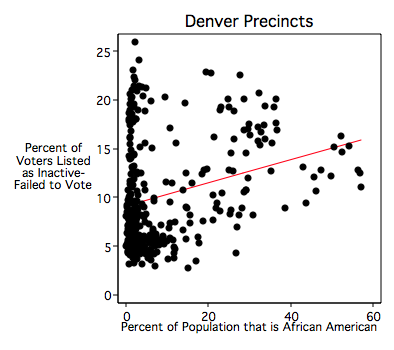I recently re-watched the original 1983 "V" miniseries with my kids. If you don't recall it, the premise is that aliens come to Earth offering peace and prosperity, but their benevolence quickly changes to tyranny, their political opponents start disappearing, and it turns out that they're actually lizards bent on stealing our seawater, enslaving some of us, and eating the rest. The show is filled with unsubtle references to the Third Reich, so probably the dominant interpretation of the show's theme is an unobjectionable but trite "Don't let the Holocaust happen again."
But there's another theme running through the miniseries: the radicalization of the comfortable. The show begins with the following dedication:
To the heroism of the Resistance Fighters — past, present, future — this work is respectfully dedicated.The show then opens in the middle of El Salvador's civil war, where a local rebel leader is being interviewed about recent losses to government soldiers. During the interview, the rebel looks directly into the camera and promises that he will keep fighting until his people are free, and then asks the audience, "You got that, Mister?" We then see him heroically defy an attacking government helicopter with a handgun.
With this setup, the mission of the show is to get us to identify with that rebel leader. What would it take to get comfortable suburban Americans to take up arms in the same way? Our stand-in is Juliet Parish (Faye Grant), a bright and mousy (if conventionally Hollywood-attractive) medical student living on the L.A. coast with her stockbroker boyfriend. She's perfectly content measuring tumors on laboratory mice and doesn't seem to have a political or violent bone in her body.
Over the course of the four-hour miniseries, though, she and a group of others find themselves marginalized and persecuted by the new alien regime and slowly find each other and take up arms. The group includes a cross-section of 1980s Los Angeles -- a white anthropologist, an African American refinery worker, a Latino gardener, an elderly Jewish Holocaust survivor -- but it is Julie's transformation that is most central to the story. Ultimately, the new rebels turn to her for organizational leadership, and she finds herself transformed into guerrilla, to the point where she reenacts the opening scene (at which she was not present), shooting defiantly at an alien vessel.
In hindsight, this is a pretty radical message. The show is encouraging us to empathize with armed guerrillas in El Salvador and essentially everywhere else in the world. (This is particularly interesting given that the U.S. was backing the El Salvadoran military at the time.) We're not so different, the show is saying. Under the right circumstances, we all could -- indeed, should -- become rebels. This was a similar tack taken by the "Galactica" reboot during the New Caprica occupation, when the show asked us to sympathize with a subjugated population building IEDs and employing suicide bombers, and they got some pushback for that. "V" was made over 20 years earlier.
Note: I have ignored the main character of Mike Donovan (Marc Singer) above in part because his role is, to me, the least interesting, even if it probably takes up the most screen time. Not that the actor does a bad job -- I like him! -- but the character just doesn't really undergo much of a transformation. He's mainly just used by the script to show us things the other humans don't get to see.





